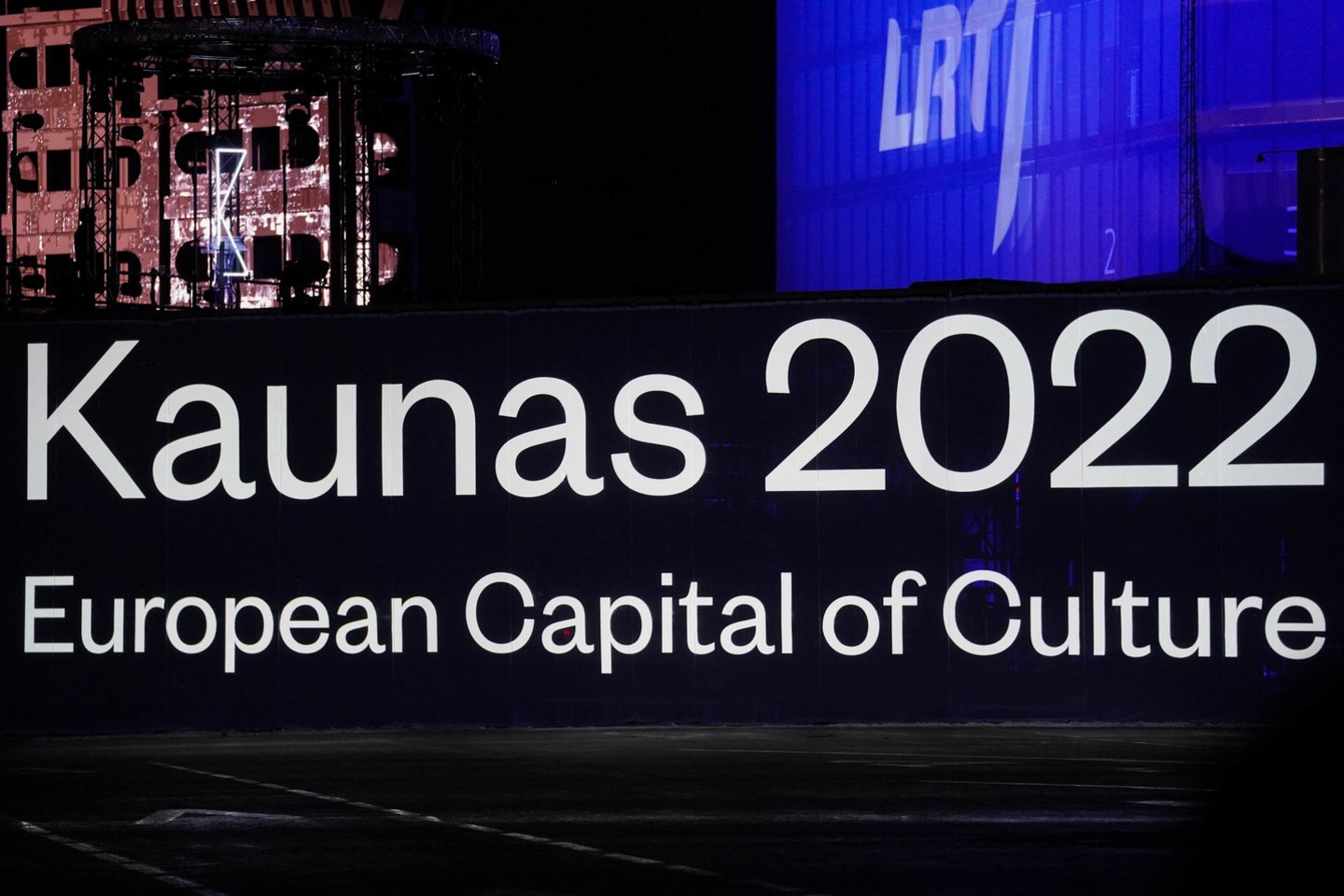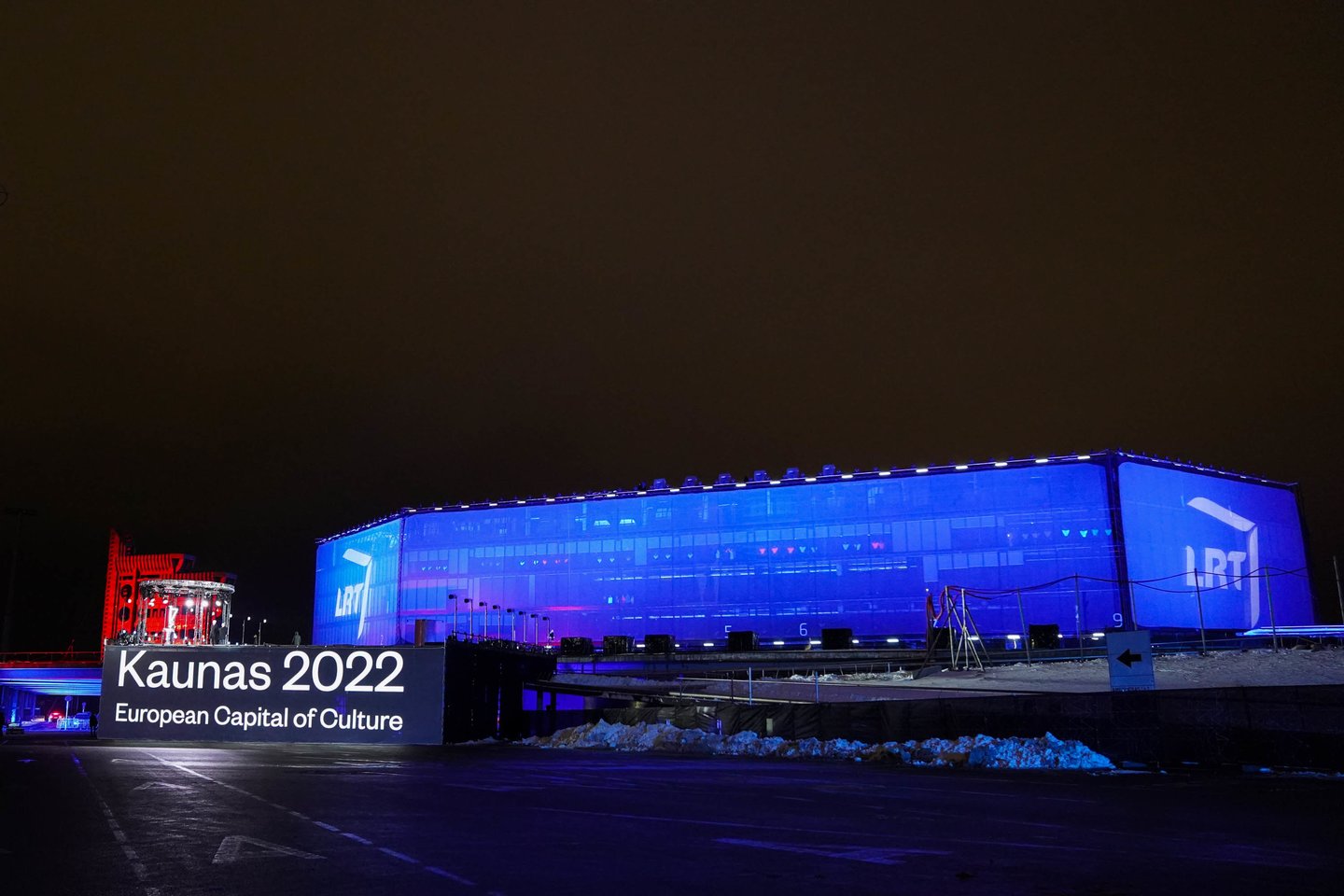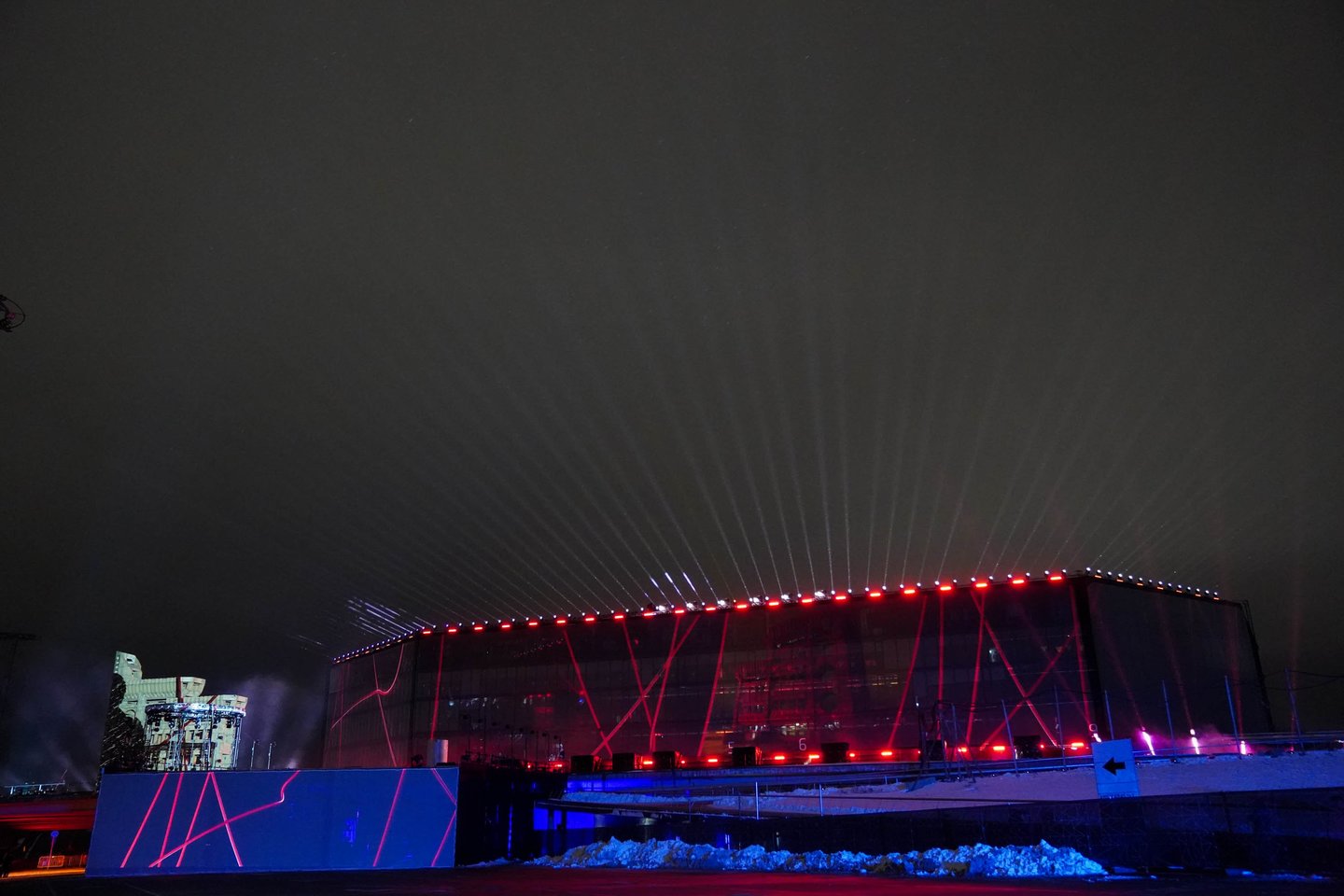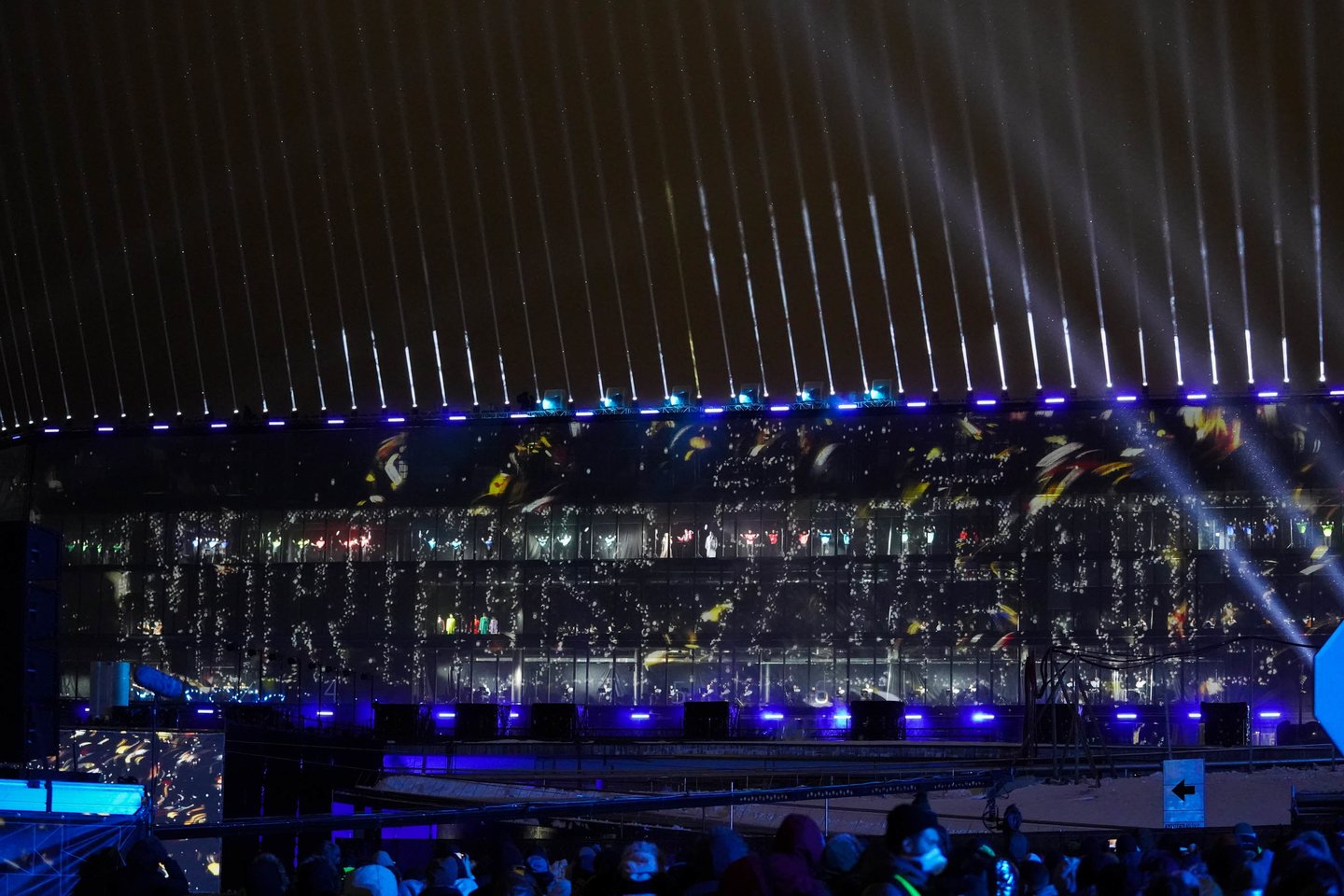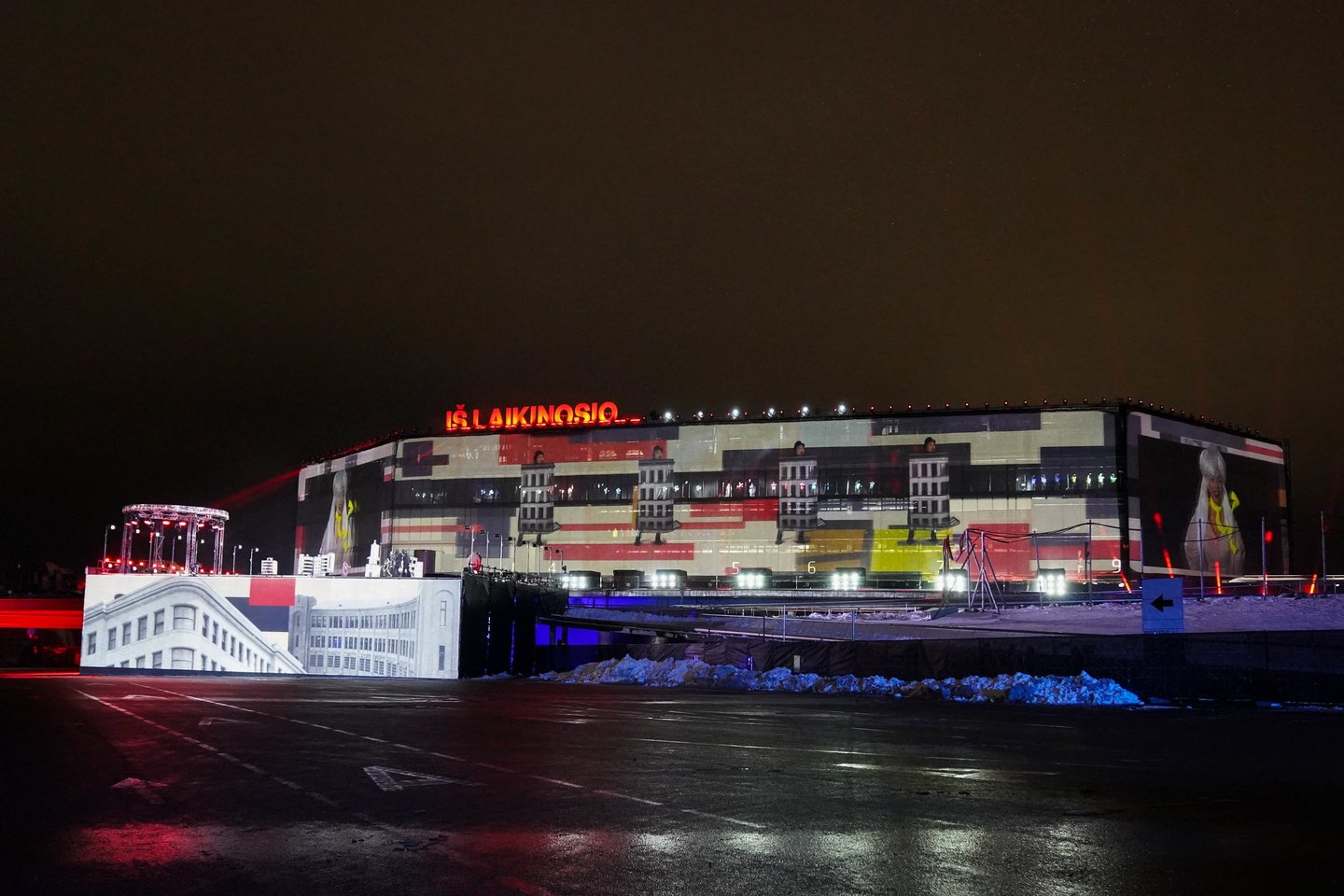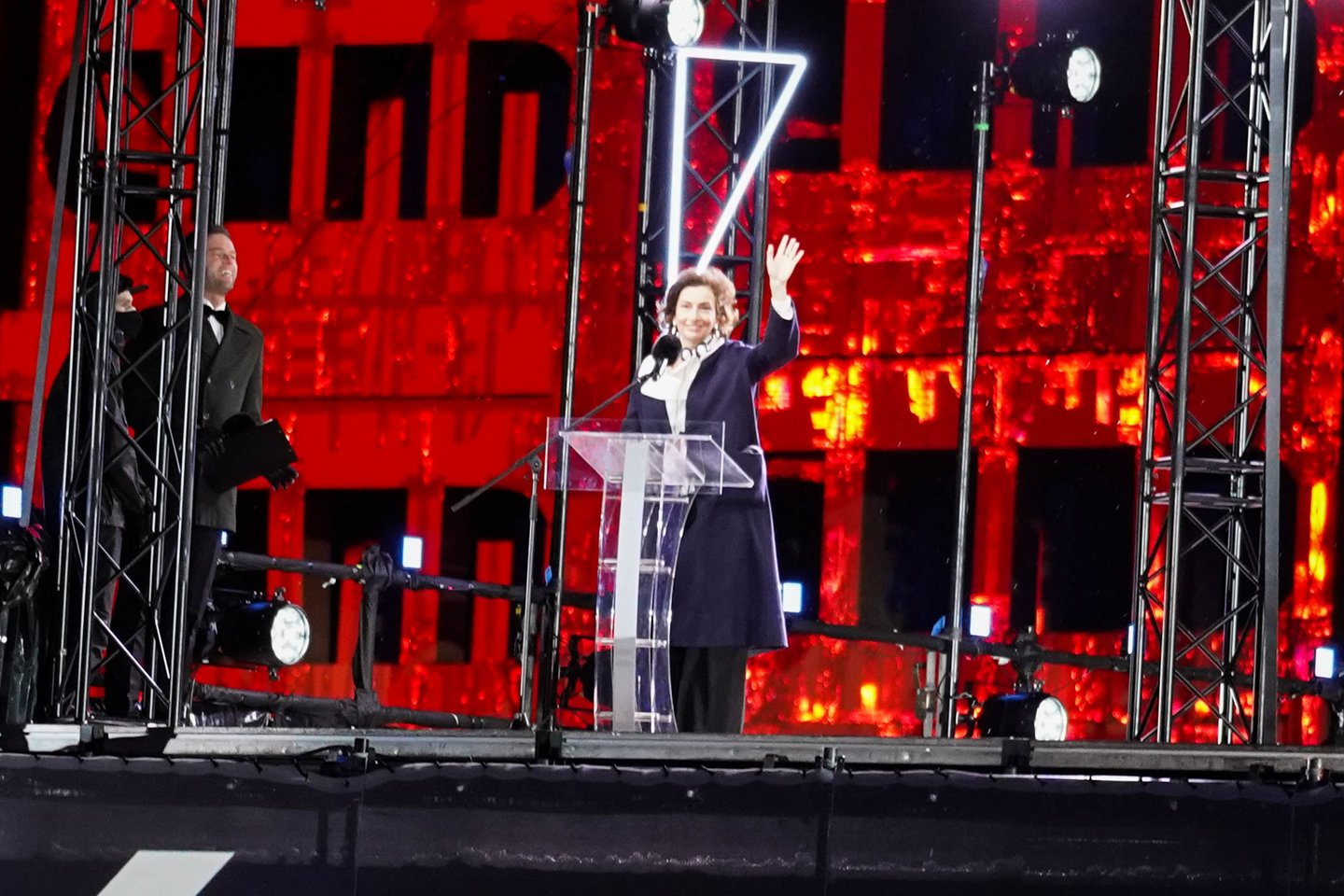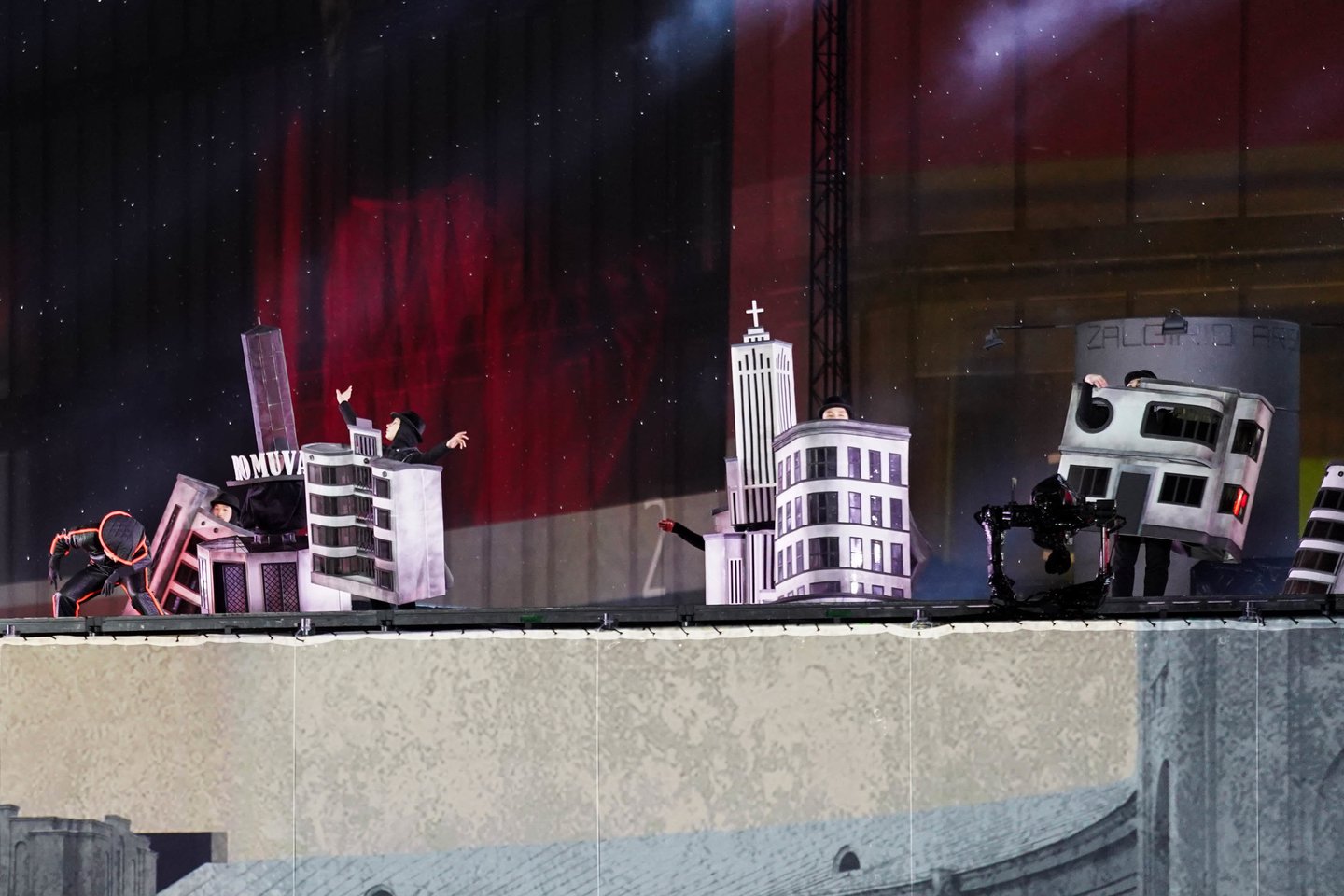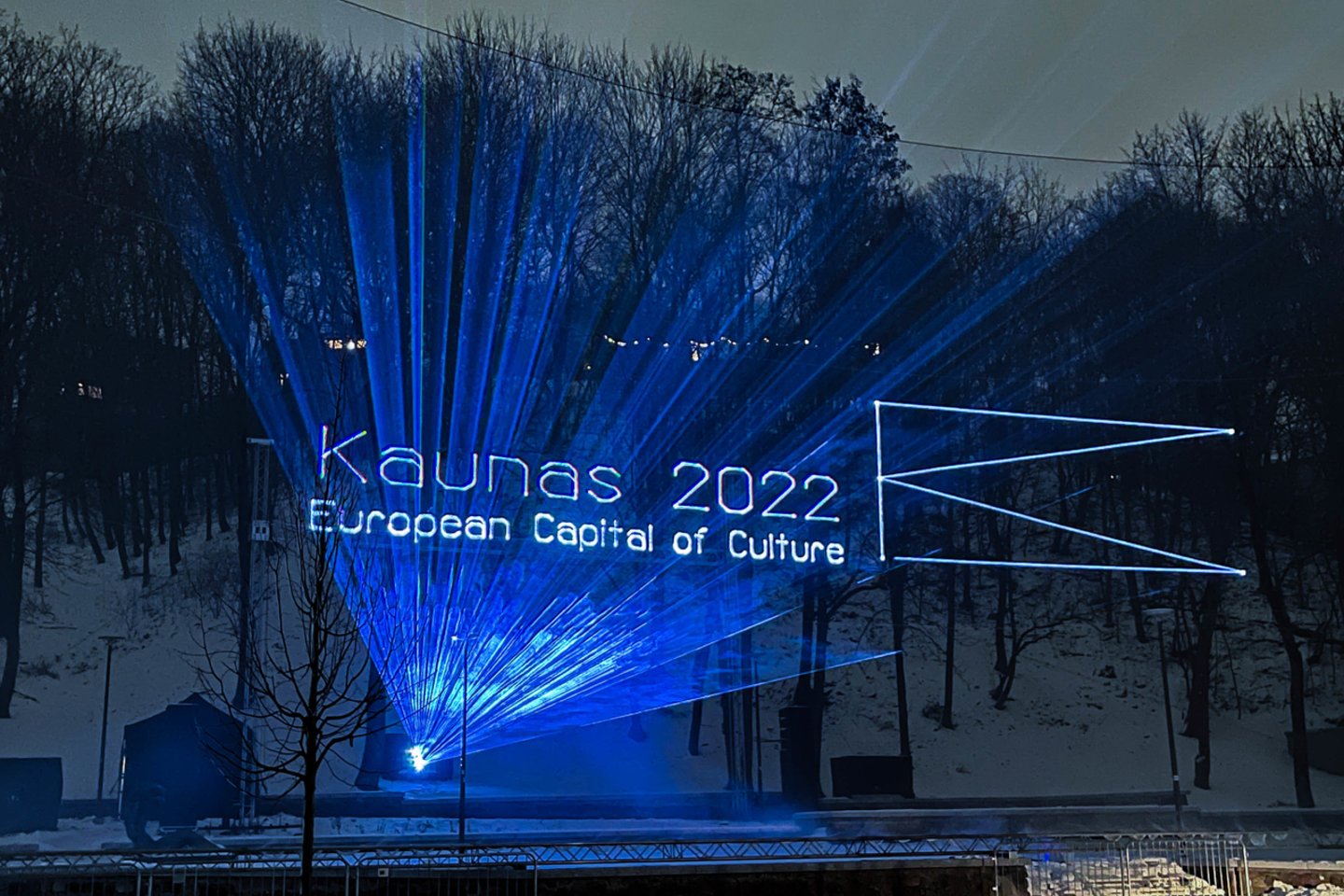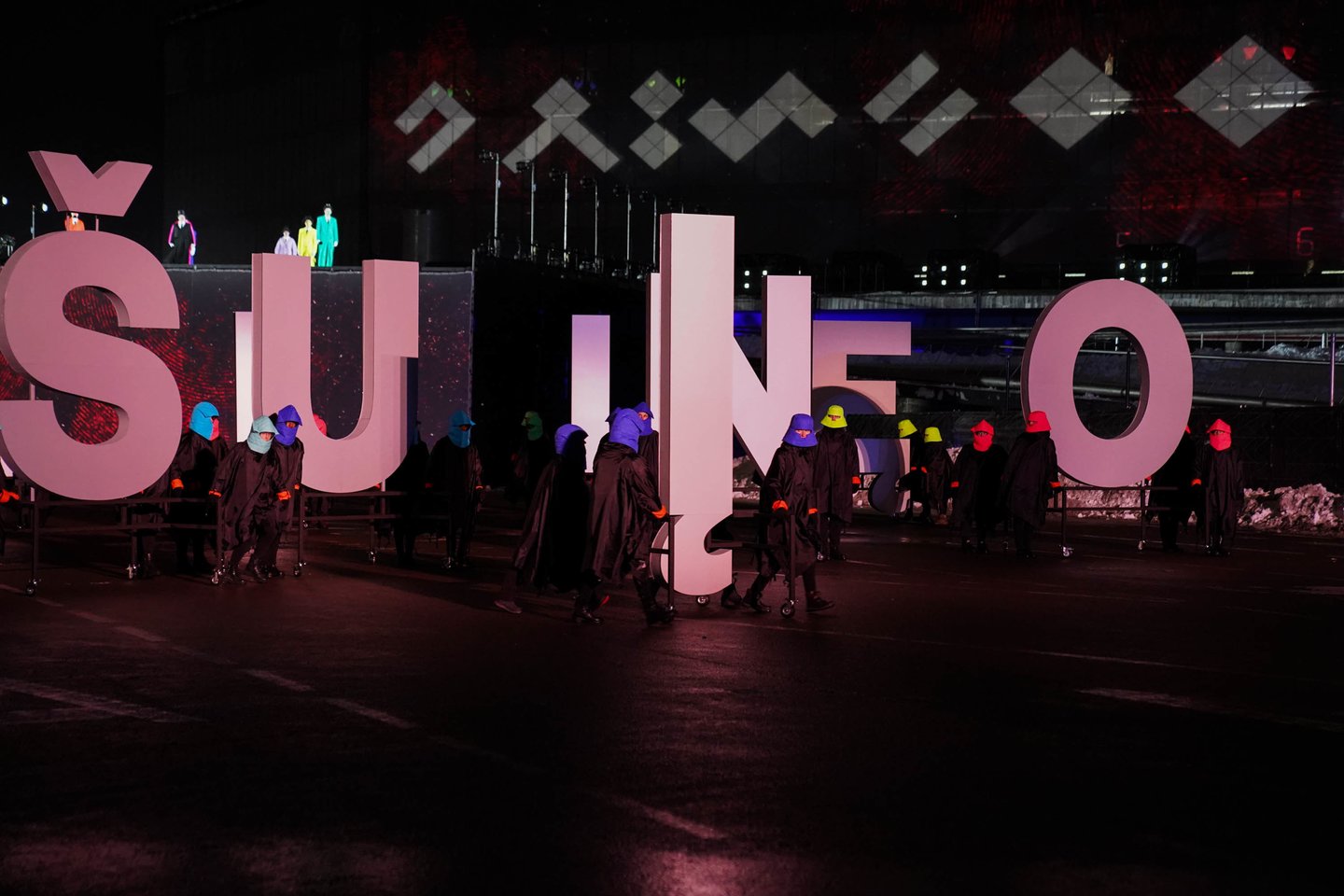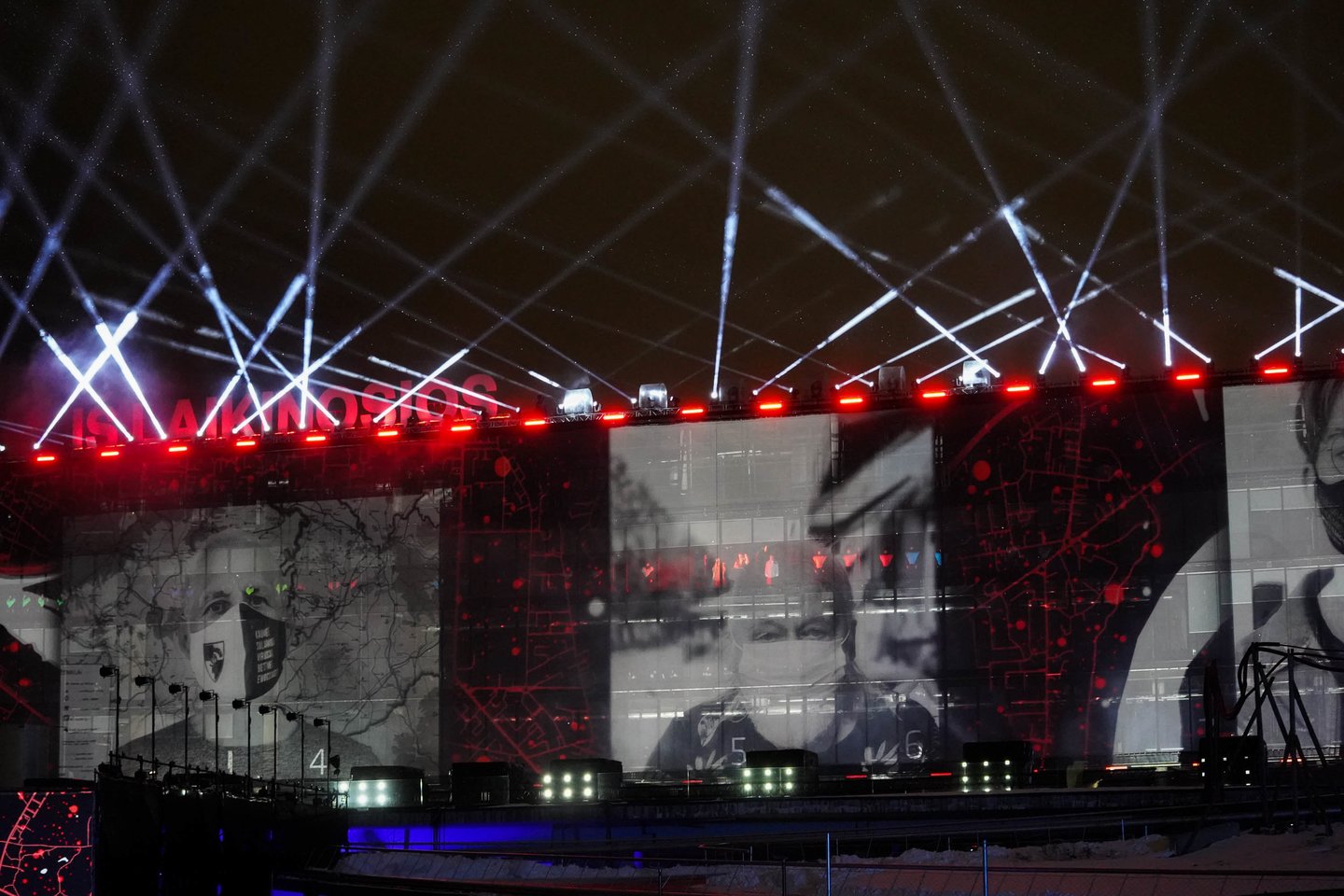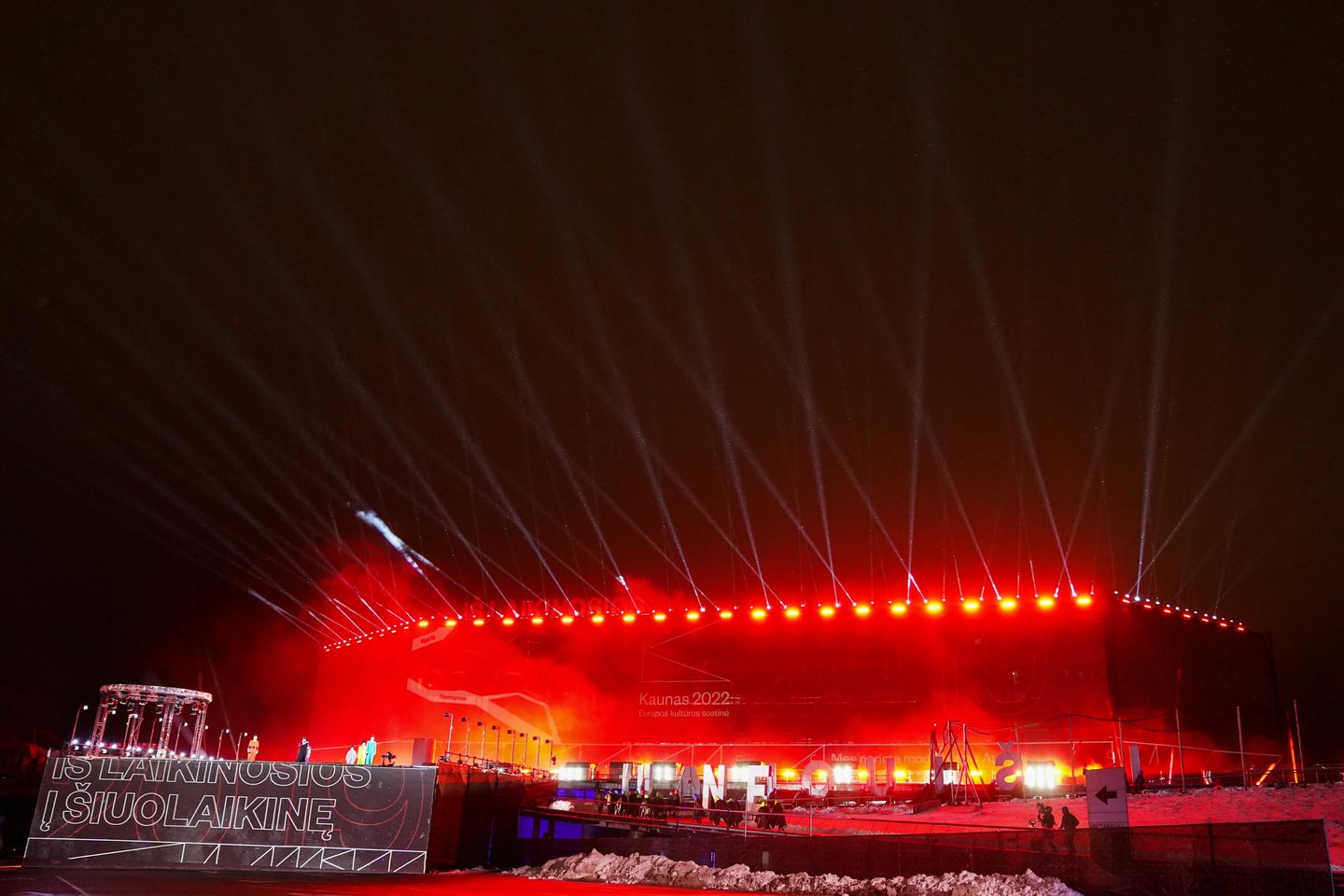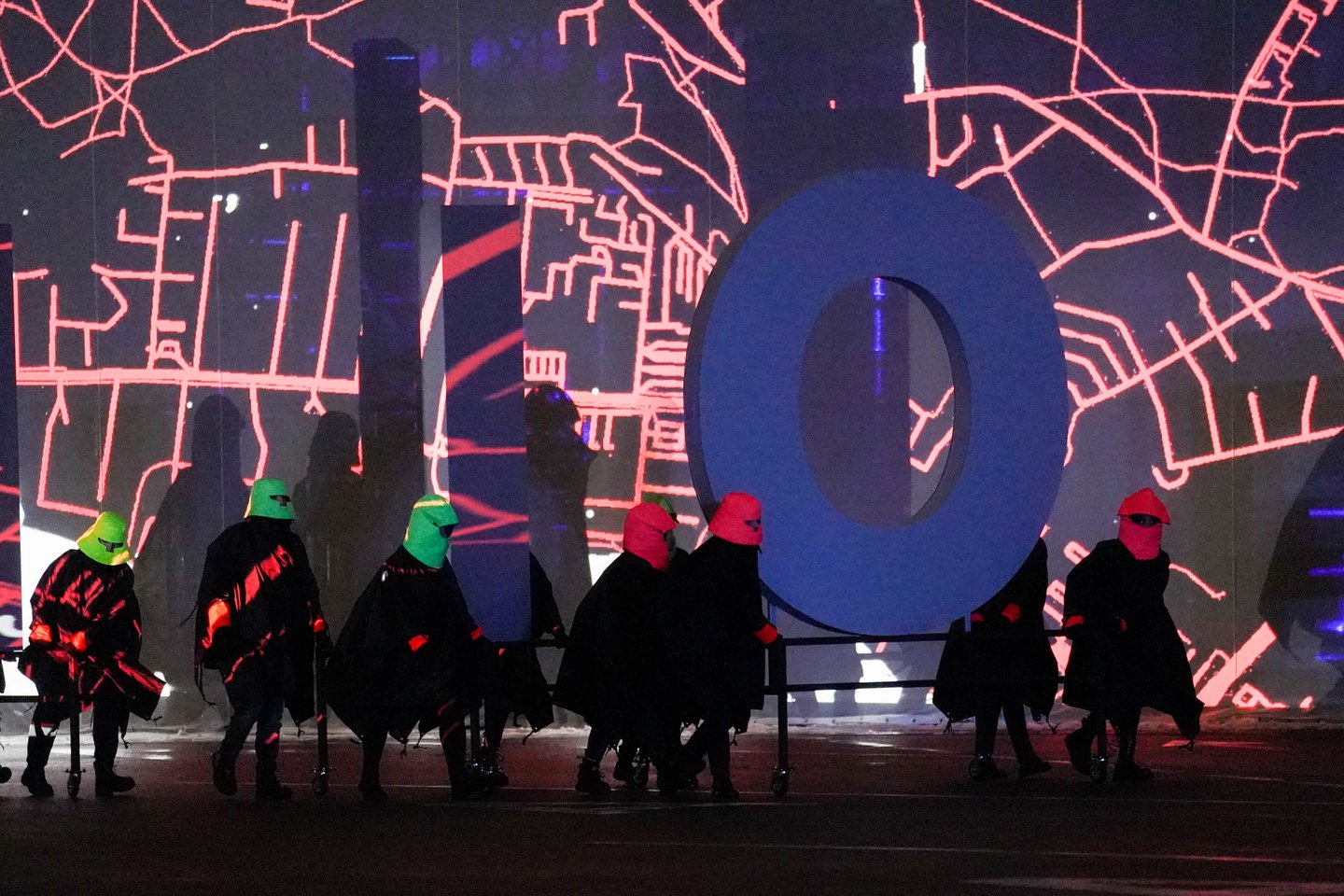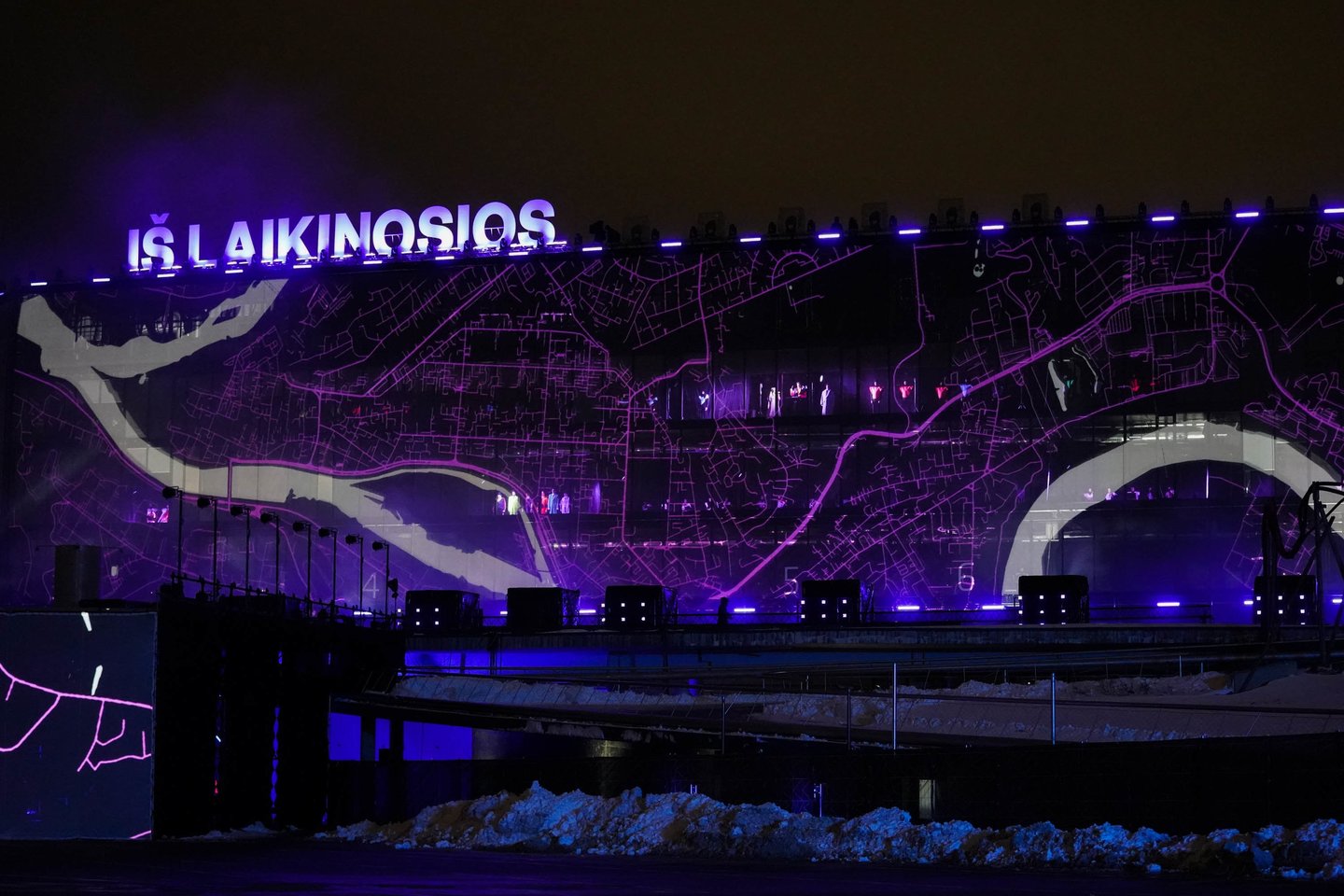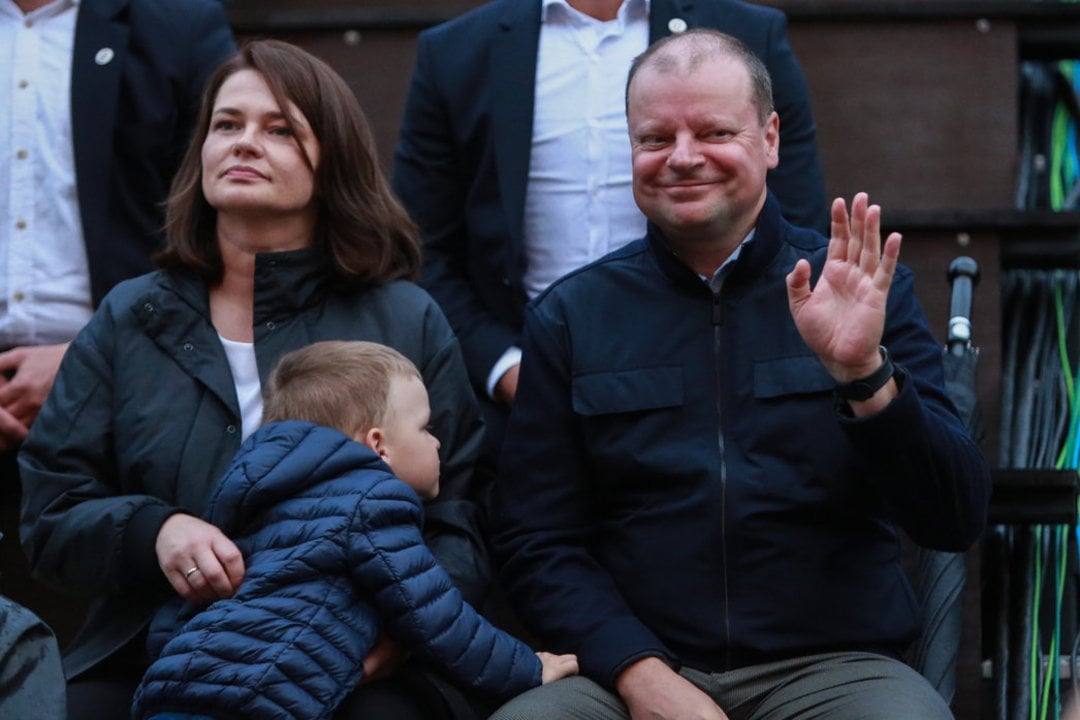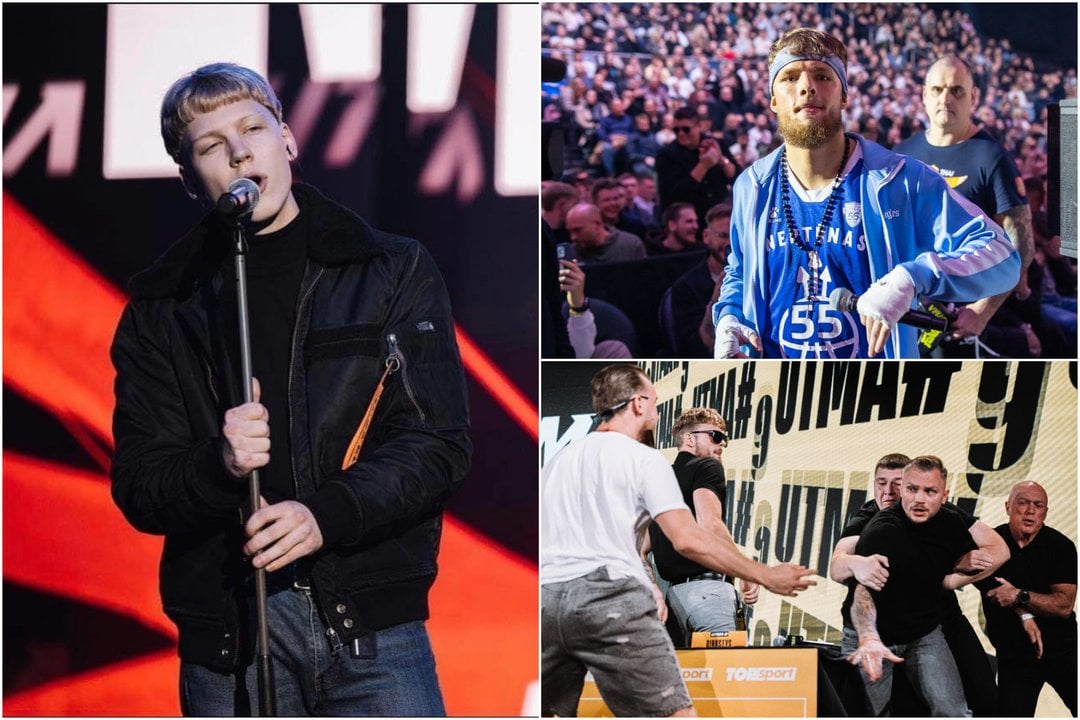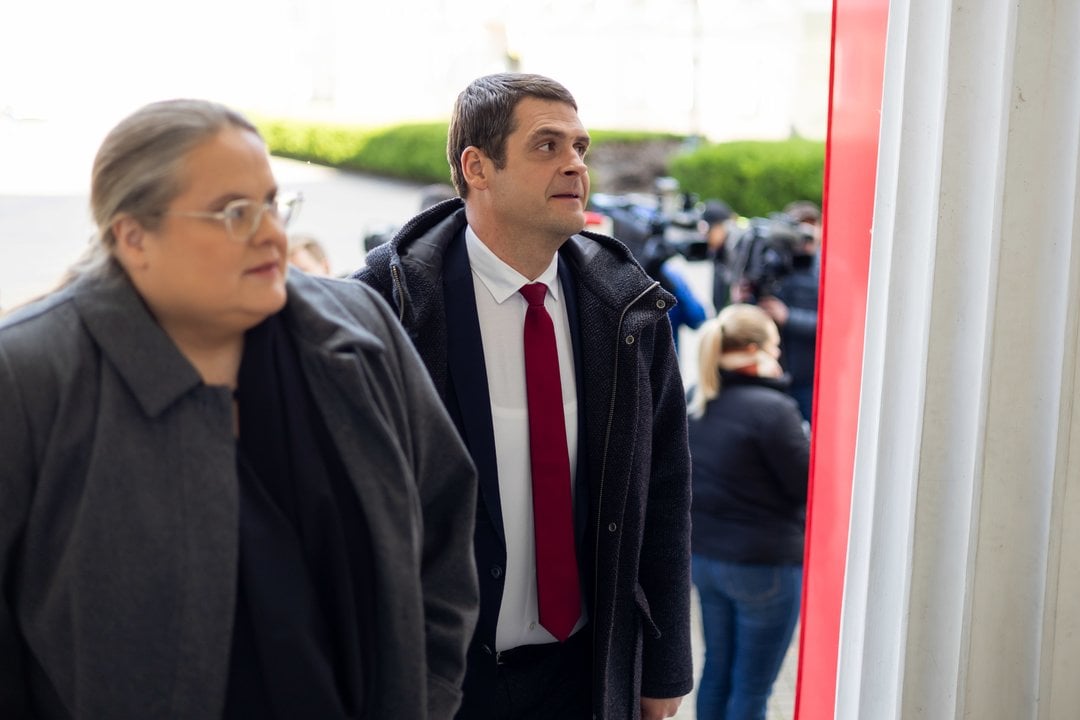With thousands of spectators in the centre of Kaunas – residents of the city, Kaunas district communities, guests from other Lithuanian cities and abroad – watching Žalgirio Arena, the largest in the Baltic States, was transformed into a screen of unprecedented size. Before the big kick-off, the most important persons of our country and the continent addressed greetings to Kaunas and Kaunas District.
In her video message, President of European Commission Ursula von der Leyen looked back to interwar modernism, which stood more for more than an artistic style – it represented a new vision for Lithuania and its people, built on pragmatism, progress and independence. The politician stressed that, 100 years later, we are again at a crossroad – and we can only succeed if we use all our talents from all and culture to technology and innovation: „Our European capitals of culture can lead this change, especially with the support of young people. And this is why I decided to make 2022 the European Year of Youth – to promote youth engagement at all levels, like with the „Emerging Kaunas“, your city’s youth program.“
„It was here in Kaunas 100 years ago that a young nation reimagined its identity through modernism. So again, today, Europe is reimagining its future through sustainability. And once again, art mirrors this transformation in a free and united Europe,“ concluded President of the European Commission and expressed a wish to visit Kaunas soon.
Charles Michel also conveyed his warm greetings by video message, President of the European Council. „Just as no man or woman is an island, alone, in a vacuum, we are all much bigger than ourselves. Because we are part of our community. We are part of our country, our continent. A part of humanity,“ said the politician. He added that there is no centre and periphery in the European Union, and today, Kaunas is more than ever the beating heart of Europe.
„Communities thrive, come together and share experiences through collective artistic endeavours. Their people share stories, histories, and share a common living memory that will outlive them and pass them on to future generations. This is how traditions are forged and propagated. This is how culture is created. And each of these cultural exchanges – no matter how big or small – helps us better understand each other and brings us closer together as Lithuanians, as Europeans,“ Charles Michel thanked Kaunas and Lithuania for their passion.
Thanking the people of Kaunas and the team that spent five years working towards the goal, the Mayor of Kaunas, Visvaldas Matijošaitis, assured that the growing city of Kaunas is thrilled to take over this honourable title.
„Our trilogy and any other -logy only gives when you want to take something – in other words, the European Capital of Culture project is based on the concept that everybody walks their own part of the way, and we meet in the centre. So we, thousands of us, are invited to reflect on what myth, Europe, and European values mean to us and to ask ourselves what message this endless team of creators wants to convey to us,“ said Rytis Zemkauskas, one of the core members of Kaunas 2022.
The action of „The Confusion“, intertwining music, image, animation, movement and other forms of artistic expression, told the story of the transformation while migrating in the space surrounding the arena. Here, dancers moved, interpreting modernist architecture, and Merūnas Vitulskis and Joana Gedmintaitė performed solo parts of the symphony „Šaipėrantas“ by Antanas Jasenka, performed by Lithuanian National Symphony Orchestra and the Vilnius Choir conducted by Modestas Pitrėnas.
Chris Baldwin, the author of the unique directorial solution, expressed that it was essential for him to turn the city itself into a stage when creating „The Confusion“ – not to hide what Kaunas really is and to use every single detail of it for creative solutions. Thus, the symbolic act of collapse became a crucial part of the show. For two days, a 22-metre-high cardboard version of an unfinished hotel created by French artist Olivier Grossetête was built by him and hundreds of volunteers, only to be destroyed to mark the beginning of a new phase of Kaunas.
At 08:22 pm, with the bells of all Kaunas churches ringing, the participants of „The Confusion“ continued their explorations of Kaunas myth other cultural endeavours. Thousands searched for symbols with maps in their hands and deciphered the mystery of the Beast of Kaunas. In contrast, others huddled in the ice sculpture-laden Independence Square, with electronic music pounding from the speakers.
The lucky ones could hear excerpts of the „Kaunas Cantata“, which will premier in September, in the windows of the cafés on Laisvės Alėja. In other shop windows, spread all along the pedestrian boulevard, artefacts of Lithuanian design history shone, making more than one curious visitor stop.
The William Kentridge exhibition at the National M.K. Čiurlionis Museum of Art and the Kaunas Central Post Office, which has become a mecca of modernist architecture, were particularly popular among exhibition-goers, as well as „Ex It“, an installation by Yoko Ono, that drew crowds to the Palace of the Bank of Lithuania.
With the rhythms of drums playing in the Vienybės Square, the Beast’s voice invited everyone to climb the stairs leading to Žaliakalnis, to meet again at the top, where Christ’s Resurrection Basilica was transformed into a spectacular installation of light and sound. The audiovisual performance „Tabalai“ reminded us to awaken the cultural Beast within us with the musical instruments created especially for this event.
The opening events of the European Capital of Culture year in Kaunas and Kaunas district took place on 19-23 January. Many of the exhibitions and other initiatives presented this weekend will continue to run, so it’s always a good time to visit Kaunas and the Kaunas district, which has become one big stage for Europe.
Act II of The Contemporary Myth of Kaunas Trilogy, „The Confluence“, will take place on 20-22 May, coinciding with Kaunas’ birthday, while the 25-27 November event „The Contract“ will finalize the transformation „From temporary to the contemporary“.
